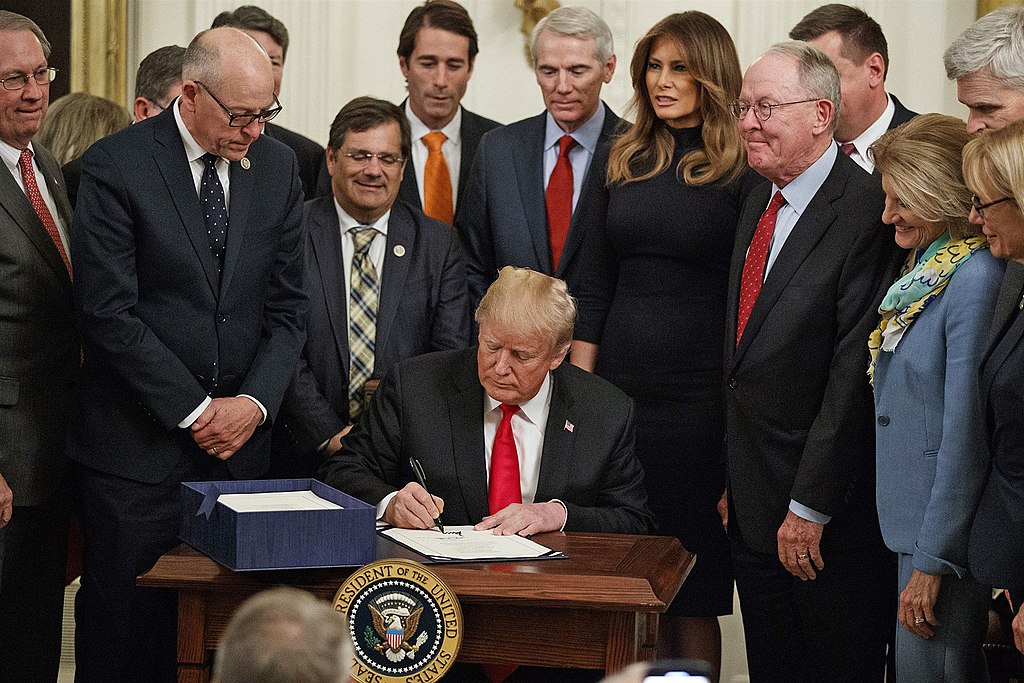Donald Trump’s 2025 presidency is set to reignite fierce debates over immigration with an ambitious and controversial deportation strategy targeting millions of undocumented immigrants. His administration’s approach focuses on sweeping enforcement measures and expanded resources for Immigration and Customs Enforcement (ICE), raising questions about its effectiveness and potential societal consequences.
Massive Deportation Push and Resource Expansion
Trump’s deportation strategy hinges on a large-scale operation to remove undocumented immigrants, prioritizing those with criminal records and recent border crossings. The administration plans to increase ICE funding dramatically, enabling the agency to hire thousands of new officers and expand detention centers to house individuals awaiting removal.
To expedite the process, Trump has proposed implementing nationwide expedited removal procedures, allowing ICE to deport individuals without lengthy court hearings. Supporters argue this will address backlogs in immigration courts and streamline the system, but critics warn of potential due process violations.
“Efficient deportations are critical for enforcing the law, but the process must be fair and transparent,” said immigration attorney Rachel Mendes.
The administration has also emphasized the use of advanced technology, including facial recognition and data analytics, to locate and apprehend undocumented individuals. While these methods aim to enhance enforcement, civil rights advocates have raised concerns about privacy and potential misuse of technology.
Employer Crackdowns and International Cooperation
A cornerstone of Trump’s strategy involves targeting employers who hire undocumented workers. The administration plans to increase workplace audits, impose heavy fines, and mandate the use of E-Verify for all employers to ensure compliance with immigration laws.
Additionally, Trump’s team has signaled plans to strengthen international cooperation to address root causes of migration. By working with Central American countries to reduce poverty and violence, the administration aims to curb the flow of migrants to the U.S.
Despite these efforts, skeptics argue that enforcement-heavy policies fail to address the complexities of immigration. “Deportations alone won’t solve the issue,” said Dr. Elena Vargas, a policy analyst. “Comprehensive reform is needed to create lasting solutions.”
Netizens React to Trump’s Deportation Strategy
The announcement of Trump’s 2025 deportation plan has sparked intense debate on social media. User @BorderPatriot tweeted, “Trump is taking bold action to protect American jobs and security. It’s about time we enforce the law.” In contrast, @HumanRightsNow criticized, “Mass deportations will tear families apart and fail to address the root causes of immigration.”
Others highlighted the economic impact. “Employer crackdowns are necessary, but they could hurt industries that rely on immigrant labor,” wrote @PolicyRealist. Meanwhile, @JusticeForAll posted, “Targeting workers instead of fixing the system is shortsighted and unfair.”
Supporters praised the administration’s focus on efficiency. “Expedited removal is long overdue. This will save taxpayer money and reduce court backlogs,” tweeted @ImmigrationReformAdvocate. Conversely, @CivilRightsDefender argued, “Streamlining deportations at the expense of due process is dangerous. We must uphold constitutional protections for all.”
Challenges and the Path Forward
Trump’s deportation plan faces significant challenges, including legal battles and resistance from advocacy groups. The administration must also navigate potential diplomatic tensions with countries receiving deportees.
As the nation braces for the implementation of these policies, the debate over immigration enforcement remains deeply divisive, highlighting the complexities of balancing security, economy, and humanity.



 Melania Trump Chairs Historic U.N. Security Council Meeting on Children Amid Iran Conflict
Melania Trump Chairs Historic U.N. Security Council Meeting on Children Amid Iran Conflict  Why did Iran bomb Dubai? A Middle East expert explains the regional alliances at play
Why did Iran bomb Dubai? A Middle East expert explains the regional alliances at play  Pentagon Downplays ‘Endless War’ Fears After U.S. Strikes on Iran Escalate Conflict
Pentagon Downplays ‘Endless War’ Fears After U.S. Strikes on Iran Escalate Conflict  Trump and Merz Meet at White House Amid Iran Strikes and Trade Tensions
Trump and Merz Meet at White House Amid Iran Strikes and Trade Tensions  Supreme Court Backs GOP Lawmaker in New York Redistricting Fight Ahead of Midterms
Supreme Court Backs GOP Lawmaker in New York Redistricting Fight Ahead of Midterms  Suspected Drone Strike Hits RAF Akrotiri Base in Cyprus, Causing Limited Damage
Suspected Drone Strike Hits RAF Akrotiri Base in Cyprus, Causing Limited Damage  Middle East Conflict Escalates After Khamenei’s Death as U.S., Israel and Iran Exchange Strikes
Middle East Conflict Escalates After Khamenei’s Death as U.S., Israel and Iran Exchange Strikes  Israel Prepares Weeks-Long Military Campaign Against Iran Amid Escalating Air Strikes
Israel Prepares Weeks-Long Military Campaign Against Iran Amid Escalating Air Strikes  Failure of US-Iran talks was all-too predictable – but Trump could still have stuck with diplomacy over strikes
Failure of US-Iran talks was all-too predictable – but Trump could still have stuck with diplomacy over strikes  Australia Rules Out Military Involvement in Iran Conflict as Middle East Tensions Escalate
Australia Rules Out Military Involvement in Iran Conflict as Middle East Tensions Escalate  Trump to Attend White House Correspondents’ Dinner 2026, Ending Long Boycott
Trump to Attend White House Correspondents’ Dinner 2026, Ending Long Boycott  Rubio Says U.S. Would Not Target School After Deadly Iran Strike Reports
Rubio Says U.S. Would Not Target School After Deadly Iran Strike Reports  Trump Says U.S. Combat Operations in Iran Will Continue Until Objectives Are Met
Trump Says U.S. Combat Operations in Iran Will Continue Until Objectives Are Met  Israel Strikes Hezbollah Targets in Lebanon After Missile and Drone Attacks
Israel Strikes Hezbollah Targets in Lebanon After Missile and Drone Attacks  EU Urges Maximum Restraint in Iran Conflict Amid Fears of Regional Escalation and Oil Supply Disruption
EU Urges Maximum Restraint in Iran Conflict Amid Fears of Regional Escalation and Oil Supply Disruption  Zelenskiy Urges Change in Iran After U.S. and Israeli Strikes, Cites Drone Support for Russia
Zelenskiy Urges Change in Iran After U.S. and Israeli Strikes, Cites Drone Support for Russia  Trump Says U.S. Attacks on Iran Will Continue, Warns of More American Casualties
Trump Says U.S. Attacks on Iran Will Continue, Warns of More American Casualties 




























